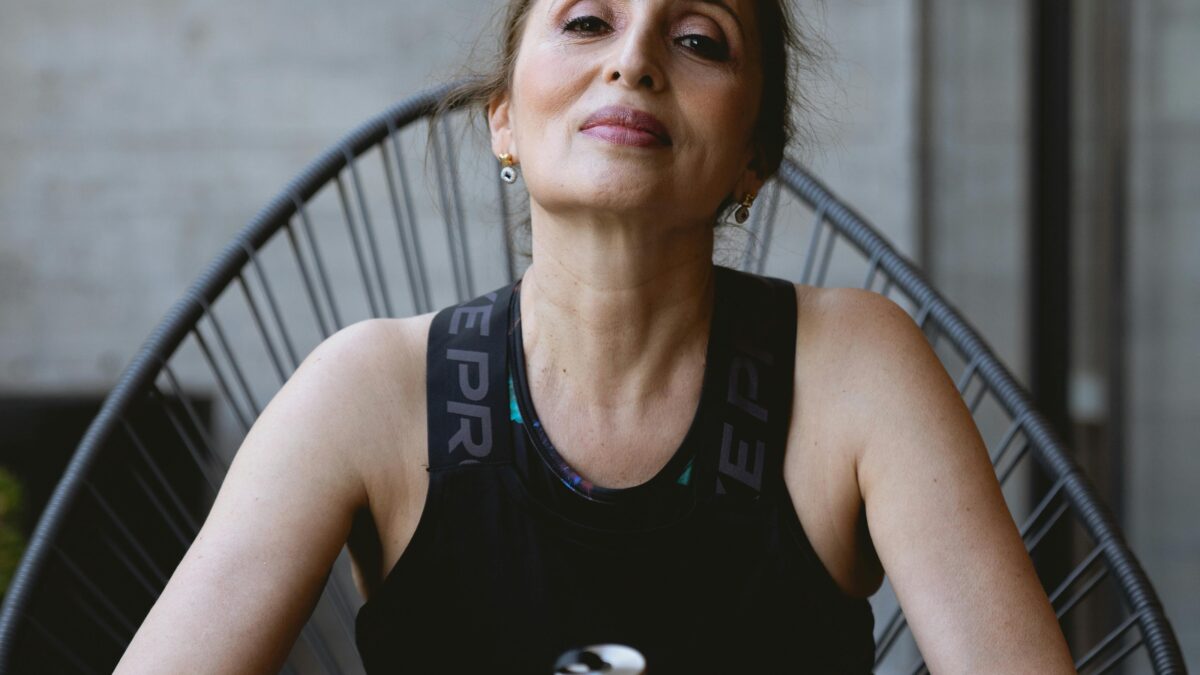
Strength Over Time: Best Low-Impact Exercises to Build Muscle After 50
October 7, 2025
Preventing Burnout in Midlife: How Caregivers and Empty Nesters Can Stay Grounded
October 15, 2025Nutrition advice is everywhere—on social media, in magazines, and from well-meaning friends. But when it comes to adults in their 50s, 60s, and beyond, not all the popular advice actually holds up. Mature bodies have different needs than they did at 25, yet many nutrition myths keep circulating. Let’s debunk three of the most common ones and highlight what science really says about protein, fiber, and hydration.
Myth 1: “Older Adults Don’t Need as Much Protein”
It’s a common misconception that protein is only important for athletes or younger people trying to build muscle. In reality, protein becomes more important with age.
The Truth:
As we age, we naturally lose muscle mass—a process called sarcopenia. Without enough protein, this loss accelerates, leading to weakness, balance issues, and even higher risk of falls. Studies show that older adults benefit from consuming slightly more protein than younger adults—closer to 1.0–1.2 grams per kilogram of body weight per day, depending on activity level.
Practical Tips:
- Spread protein throughout the day: include it at breakfast, lunch, and dinner instead of saving it all for one meal.
- Focus on high-quality sources like eggs, poultry, fish, Greek yogurt, legumes, and lean cuts of meat.
- If chewing is an issue, soft protein sources (cottage cheese, smoothies with protein powder) work well.
Protein isn’t just about muscles—it supports immune function, hormone balance, and wound healing too.
Myth 2: “Fiber Is Only for Digestion”
Most people know fiber keeps digestion regular, but many stop there. The myth is that fiber’s role ends in the gut.
The Truth:
Fiber plays a much bigger role in overall health:
- Heart health: Soluble fiber helps lower LDL cholesterol.
- Blood sugar control: Fiber slows glucose absorption, which is especially important for people managing type 2 diabetes.
- Weight management: High-fiber foods keep you full longer, helping prevent overeating.
- Gut microbiome: Fiber feeds beneficial gut bacteria, which can influence immunity, mood, and even brain health.
The recommended intake is about 21 grams per day for women over 50 and 30 grams for men over 50—yet most adults fall short.
Practical Tips:
- Choose whole grains (oats, barley, brown rice) instead of refined grains.
- Add beans and lentils to soups, salads, or sides.
- Snack on fruits, nuts, and raw veggies instead of processed foods.
- Increase fiber gradually to avoid bloating, and pair it with plenty of fluids.
Fiber isn’t just about the bathroom—it’s about building resilience throughout the body.
Myth 3: “Drink 8 Glasses of Water a Day”
You’ve probably heard the “8×8 rule”—eight 8-ounce glasses of water per day. But hydration needs are more nuanced, especially for mature adults.
The Truth:
Hydration depends on activity level, climate, medications, and health conditions. Plus, as we age, our sense of thirst diminishes, which means older adults may not realize when they’re dehydrated. Dehydration can cause fatigue, headaches, constipation, and even confusion.
Water is ideal, but hydration also comes from fruits, vegetables, soups, and even tea or coffee (in moderation). Instead of sticking to a rigid number, pay attention to:
- Urine color: Pale yellow = hydrated; dark yellow = drink more.
- Body cues: Dry mouth, dizziness, or fatigue can signal low fluids.
- Situational needs: Hot weather, exercise, or certain medications may increase your hydration requirements.
Putting It All Together
Healthy aging isn’t about following outdated nutrition myths—it’s about listening to your body and giving it what it truly needs.
- Prioritize protein daily to maintain strength and independence.
- Treat fiber as a powerhouse nutrient, not just a digestion aid.
- Stay mindful of hydration and don’t rely on thirst alone as a guide.
By understanding and applying these truths, you’ll not only support your health but also rediscover energy, clarity, and vitality for the years ahead.
Nutrition for mature adults isn’t about restriction or complicated rules—it’s about smarter choices that reflect how your body changes with age. Forget the myths and focus on balance, variety, and consistency. Because at the end of the day, nourishing your body is one of the best investments you can make in your independence, well-being, and glow at any age.

